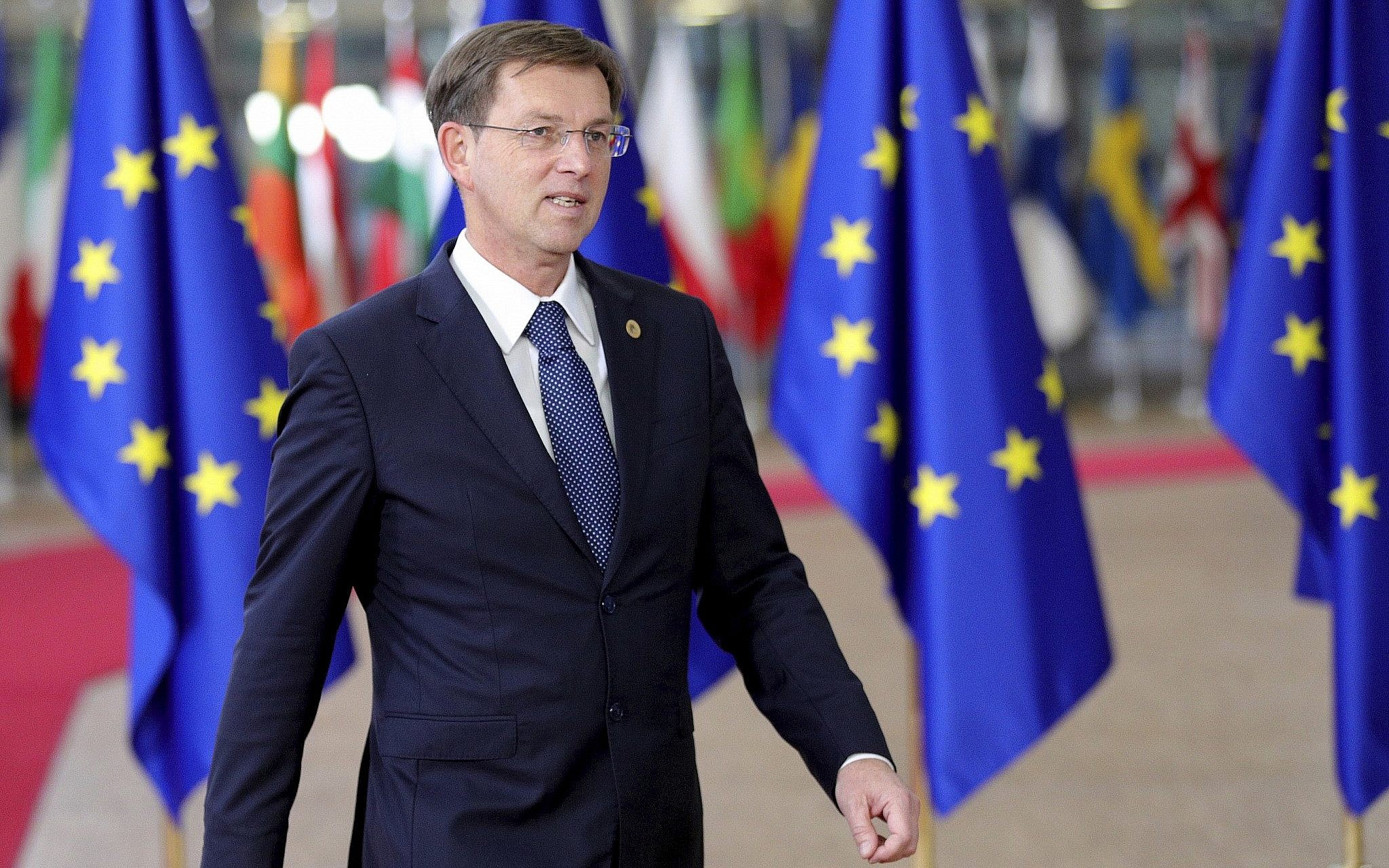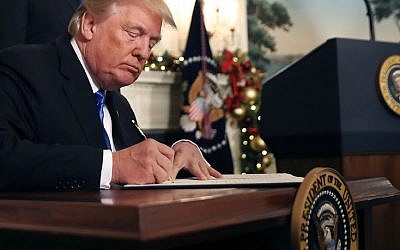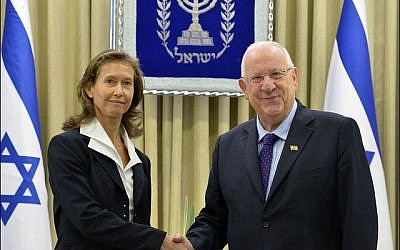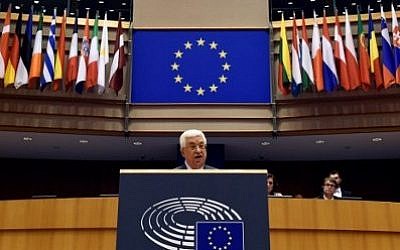A Brief Colonial History Of Ceylon(SriLanka)
Sri Lanka: One Island Two Nations
A Brief Colonial History Of Ceylon(SriLanka)
Sri Lanka: One Island Two Nations
(Full Story)
Search This Blog
Back to 500BC.
==========================
Thiranjala Weerasinghe sj.- One Island Two Nations
?????????????????????????????????????????????????Wednesday, January 31, 2018
Slovenia to recognize Palestinian state next month — TV report
Luxembourg, Ireland, Belgium also reportedly gearing up to follow suit, while French is said to be pushing for EU free trade deal with PA

Slovenian
Prime Minister Miro Cerar arrives for an EU summit at the Europa
building in Brussels on December 14, 2017 (AP Photo/ Olivier Matthys)
By RAPHAEL AHREN and SUE SURKES-21 January 2018
Trump said his declaration reflected reality on the ground, and was not
intended to prejudge any future arrangement between Israel and the
Palestinians regarding the disputed city, though he later said it had
taken Jerusalem off the table. Welcomed by Prime Minister Benjamin
Netanyahu and leaders across most of the Israeli political spectrum, the
move caused an uproar throughout the Muslim world and was panned by the
United Nations, the European Union, and many European countries.

US President Donald Trump signing a proclamation that the US government
will formally recognize Jerusalem as the capital of Israel, at the White
House in Washington, DC, December 6, 2017. (Chip Somodevilla/Getty
Images via JTA)
Last month, Slovenian Parliament Speaker Milan Brglez told Palestinian
Ambassador Salah Abdel-Shafi that Slovenia’s recognition of a
Palestinian state was “not in doubt,” but just a question of timing.
Slovenian Prime Minister Miro Cerar said at the time that although all
three Slovenian coalition parties had voted in favor of recognition, his
country should wait until a group of EU member states decided to act
together.
The Slovenian government decided to move ahead on plans to recognize a
Palestinian state a week ago, the Channel 10 report said. It said that a
vote on recognition was expected to be held by the Slovenian
parliament’s foreign affairs committee on January 31, followed by a vote
of the full parliament in February.
The Slovenian ambassador in Tel Aviv, Barbara Sušnik, told The Times of
Israel that the issue of recognizing Palestinian statehood has been
pending in the country’s parliament since 2014, and is only now coming
to a vote.

President Reuven Rivlin with the Ambassador of Slovenia, Barbara Susnik, November 2015 (Israeli Ministry of Foreign Affairs)
She confirmed that the foreign affairs committee will vote on the matter on January 31.
If the committee votes in favor of recognizing Palestine, the issue
will be brought to a vote in the full plenary of the Parliament.
As opposed to many other Western democracies, it is Slovenia’s
legislative branch, not its executive, which has the last word on
foreign policy matters such as recognizing states.
Sušnik said it was difficult to predict how the parliamentarians would
vote, but hinted that there was a good chance they would seek to assert
the Palestinians’ right to self-determination.
“The elected representatives of the people will decide the way they
decide. It’s their decision,” she said. “For the people of Slovenia, the
principle of self-determination of nations is very important, because
that is how Slovenia became independent 26 years ago, when we exercised
the right to self-determination. All nations have the right to
self-determination.”
Sušnik stressed that a possible recognition of Palestine should not be
seen as a move hostile to Israel. “We established friendly relations
with Israel more than 25 years ago, and we appreciate them a lot,” she
said. “We’re committed to good relations with Israel. Our embassy in Tel
Aviv was opened in the summer of 1994, right after diplomatic relations
were established. Unfortunately, Israel never opened an embassy in
Slovenia.”
The Channel 10 report said that Israel’s Foreign Ministry has been
trying to recruit Slovenian lawmakers to oppose the move, although
expectations are low that the process can be stopped.
According to the report, Luxembourg’s foreign minister called several
days ago for a group of European countries to come together and
recognize a Palestinian state, and is reportedly trying to convince
France to lead the initiative. Ireland’s foreign minister, who recently
visited Israel, conveyed at the time that his country was seriously
considering recognizing a state of Palestine, the report said. It also
named Ireland and Belgium as countries that could soon recognize
Palestinian statehood.

Palestinians protest against the US for withholding $65 million from
Palestinian aid programs, in front of the UN Relief and Works Agency
offices in the Nusseirat refugee camp, central Gaza Strip, January 17,
2018. (AP Photo/Adel Hana)
Channel 10 quoted a senior Israeli official as saying, “Our position is
that recognition of a Palestinian state, which is not within the
framework of an agreement, harms the chance of achieving peace and even
pushes it further away.”
The French newspaper Le Monde, meanwhile, reported on Sunday that France
is trying to upgrade the Palestinian Authority’s status at the European
Union, stopping short of full recognition of a Palestinian state.
The French are reportedly pushing for an EU free trade agreement with the Palestinians, similar to the one signed with Israel.
PA President Mahmoud Abbas is scheduled to arrive in Brussels on Monday,
where he will meet with the foreign ministers of the Union’s 28
countries. The issue of recognition of a Palestinian state is expected
to be at the top of the agenda for the talks.
After Trump recognized Jerusalem as the capital of Israel in December,
the Palestinian leadership declared Washington could no longer fulfill
the historic and central role in the peace process it has held for over
two decades.
Last week, the Central Committee of the Palestine Liberation
Organization’s (PCC) — the second-highest decision-making body for
Palestinians — ratified that the US had “lost its eligibility to
function as a mediator and sponsor of the peace process” until it
reverses the Jerusalem decision.

President of the Palestinian Authority Mahmoud Abbas delivers a speech
at the European Union Parliament in Brussels on June 23, 2016. (AFP
PHOTO / JOHN THYS)
Sweden was the first western European country to recognize Palestine, in October 2014.
In December 2014, in a symbolic move not binding on government policy,
French lawmakers voted in favor of recognizing Palestine as a state,
following similar moves in Britain and Spain, as European countries
tried to restart the stalled Middle East peace process. Italy followed
suit in 2015.
